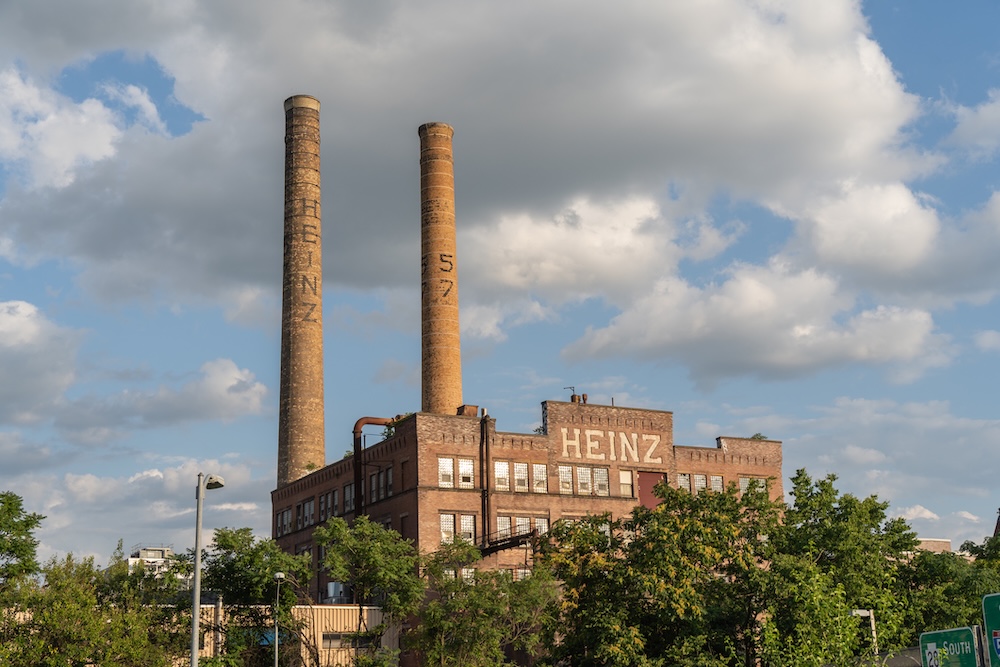Few families have shaped a city as profoundly as the Heinz family has transformed Pittsburgh. Their story intertwines with the very fabric of the city, reflecting a legacy that goes beyond business success. This article explores how one family’s vision altered the economic and cultural landscape of an American city.
H.J. Heinz began with a simple idea, launching a venture that would evolve into a global food empire. Through innovation in production and a commitment to quality, the Heinz Company not only flourished but also became a cornerstone of Pittsburgh’s economy. As the city experienced industrial growth, the Heinz family emerged as a key player in employment and community development.
Beyond food production, the Heinz family embraced the rich diversity of Pittsburgh’s immigrant communities, contributing significantly to the city’s culinary identity and social activism. Their philanthropic efforts and cultural influence have deeply embedded the Heinz name into the city’s heritage, leading to lasting improvements in education and public services. Join us as we delve into the profound legacy of the Heinz family and its enduring impact on Pittsburgh.
Background of the Heinz Family
The Heinz family is one of the most influential in Pittsburgh’s history. Their story is woven into the city’s fabric. The family’s roots trace back to European immigrants who settled in Allegheny City, now part of Pittsburgh, in the 19th century. They thrived by leveraging the area’s natural resources. Over time, the Heinz family significantly impacted Pittsburgh’s cultural and economic landscape. Their contributions touched various sectors, including food, industry, and philanthropy. As stewards of the Heinz business, they influenced other immigrants and facilitated the city’s growth into an important American community.
Early Life of H.J. Heinz
Henry J. Heinz, often called H.J. Heinz, was born in Pittsburgh in 1844. He grew up in a German immigrant family in Allegheny County. From an early age, he showed a keen interest in business and innovation. Selling vegetables from his mother’s garden, young Henry developed skills that would later pave the way for the famous Heinz Company. His experience in this diverse immigrant community taught him about the benefits of hard work and resilience. These lessons helped shape his future endeavors and cemented his role in Pittsburgh’s burgeoning industry sector.
Origins of the Heinz Company
The Heinz Company was founded in 1869 when Henry partnered with his cousin Frederick. They started by selling horseradish, which was bottled in clear glass to highlight its purity. Unlike other products of the time, it was honest about its ingredients. This transparency quickly gained consumer trust. With time, the company expanded its product line, introducing the famous Heinz Ketchup by the end of the 19th century. Their innovation and commitment to quality directly contributed to Pittsburgh’s reputation for producing quality goods. The company’s growth mirrored the city’s transition into an industrial hub, alongside giants like U.S. Steel and Carnegie’s steel mills. The Heinz legacy lives on, contributing both to Pittsburgh’s economic prowess and cultural heritage.
The Growth of the Heinz Empire
The Heinz family has played a crucial role in shaping Pittsburgh’s cultural and economic history. Henry John Heinz founded the H.J. Heinz Company in 1869. This marked the beginning of a food production empire that would influence not only Pittsburgh but also North America. The Heinz family capitalized on the natural resources and vibrant immigrant community of Allegheny County. This helped their business grow rapidly during the 19th and 20th centuries. Their legacy continues to influence Pittsburgh’s identity today, drawing parallels with other industrial magnates like Andrew Carnegie.
Innovative Practices in Food Production
The Heinz family was a pioneer in adopting innovative practices in food production. H.J. Heinz started using clear glass bottles to show the purity of their products. This was a new concept in the 19th century that built consumer trust. They also introduced the “57 Varieties” slogan, which became iconic. Heinz used electric lights in their factory, which was rare at that time. These bright innovations set a standard in the food industry.
Impact on Local Employment and Economy
The Heinz Company was a major employer in Pittsburgh for many decades. Its growth created thousands of jobs, stimulating the local economy. The rapid expansion of their factories provided steady work for European immigrants. This bolstered Allegheny City and Downtown Pittsburgh as key economic hubs. The Heinz family also gave back to the community. They supported educational institutions like the University of Pittsburgh and Carnegie Mellon University. Their impact on art, education, and culture remains evident. Institutions like the Heinz History Center preserve this rich history, showcasing the Heinz family’s contributions to a thriving Pittsburgh community.
In summary, the growth of the Heinz empire played a pivotal role in building Pittsburgh’s economy. They influenced culture and industry alongside notable figures like Andrew Carnegie.
The Role of Immigration in Pittsburgh’s Development
Immigration has played a key role in shaping Pittsburgh’s history. From the 18th century, people from Europe came to the city. Immigrants were drawn by the promise of jobs in industries like steel mills. Their arrival changed Pittsburgh, creating a city that reflects a mix of cultures and ideas. This blend helped form Pittsburgh’s cultural and economic identity, making it a strong American community.
Diversity of Ethnic Communities
Pittsburgh’s population is a rich tapestry of ethnic communities. European immigrants, such as Germans, Italians, and Irish, established strong neighborhoods. These groups brought their languages, traditions, and arts. Today, you can visit places like the Heinz History Center to learn about their contributions. Each community has added to the diversity that defines the city.
Culinary Contributions to Pittsburgh’s Identity
Food is a key part of Pittsburgh’s culture. Immigrants introduced many flavors and recipes that are still popular today. Think about dishes like pierogies from the Polish or the famous Heinz ketchup started by Henry J. Heinz. These foods showcase the city’s rich culinary history. It’s a blend of global flavors that reflects the multicultural heritage of the area.
Social Activism and Community Development
Immigrant communities also contributed to social activism in Pittsburgh. They worked to improve conditions in factories and neighborhoods. Groups formed to fight for workers’ rights, fair pay, and safe working environments. The Heinz family, for example, was involved in community development and philanthropy. Their support helped projects that advanced education, health, and the arts. Today, Pittsburgh stands as a testament to the collective efforts of its diverse immigrant population.
Philanthropy and Community Engagement
The Heinz family has played a significant role in shaping Pittsburgh’s cultural and economic landscape. Their contributions extend beyond business, deeply affecting local philanthropy and community engagement. This legacy includes various charitable initiatives and support for education and public services.
The Heinz Family’s Charitable Initiatives
The Heinz family has given back to the community for generations. Their philanthropic efforts have supported many causes, focusing on making life better for Pittsburgh residents.
- H.J. Heinz: Henry J. Heinz, known as H.J. Heinz, founded the Heinz Company in the 19th century. His success allowed him to fund local charities and community services.
- Teresa Heinz: Teresa Heinz’s involvement through the Heinz Endowments continues to support arts, culture, and the environment.
- Community Contributions: The family has donated to health care, community parks, and conservation projects.
Influence on Education and Public Services
The Heinz family’s influence extends to education and public services in Pittsburgh. Their efforts have made a lasting impact on some of the city’s most crucial institutions.
- University of Pittsburgh: Funding scholarships and programs that benefit students.
- Carnegie Mellon University: Supporting research and development initiatives.
- Public Libraries: Helping establish libraries to promote education for all.
The Heinz family’s commitment to these areas has enhanced the quality of life and fostered a spirit of learning and community support in Pittsburgh. Their leadership in philanthropy continues to inspire others in Allegheny County and beyond.
The Heinz Brand and its Cultural Influence
The Heinz family’s journey began in Pittsburgh during the 19th century. H.J. Heinz founded the company in 1869 in the Allegheny City area, now part of Pittsburgh. The region, rich with natural resources, was a suitable spot for Heinz’s growing operations. Over time, the Heinz brand became intertwined with Pittsburgh’s identity. This connection strengthened both the cultural and economic fabric of the city. Heinz’s reach extended beyond the local market. It established a global presence, putting Pittsburgh on the map as a center of innovation and production.
Marketing Innovations and Brand Recognition
Heinz was a marketing pioneer. One of their early efforts was the introduction of clear glass bottles. This allowed customers to see the product’s quality, building trust and brand loyalty. The Heinz slogan, “57 Varieties,” became legendary. Despite its arbitrary choice, it gave the brand a unique identity. Heinz also recognized the importance of consistency in branding across various platforms. This approach ensured the brand’s recognition and longevity, helping it stand out amidst fierce competition.
The Symbolism of Ketchup in American Culture
Ketchup is more than just a condiment. It symbolizes accessibility and convenience in American homes. Originally a luxury, it became a staple thanks to Heinz’s mass production and marketing. This shift reflected broader changes in American dining habits in the 20th century. Ketchup joined other convenient foods, like canned goods and ready-made meals, reflecting society’s shift towards fast and easy dining. The red-tipped bottle not only represents Heinz but also the adaptation of European immigrants’ customs into the mainstream American lifestyle. In this way, ketchup mirrors the melting pot that is American culture.
The Transformation of Pittsburgh’s Urban Landscape
Pittsburgh has a rich history shaped by influential figures and industries. Two major forces in this transformation were the Heinz family and the steel industry. Their contributions to the city helped craft an urban landscape that balances cultural heritage with economic prowess.
Infrastructure Development Driven by Industry
The growth of Pittsburgh in the 19th and 20th centuries owes much to its thriving industries. Visionaries like H.J. Heinz and Andrew Carnegie played crucial roles. Henry J. Heinz founded the famous Heinz company in 1869. His business grew rapidly, providing jobs and boosting the local economy. Meanwhile, Andrew Carnegie invested in steel production, making Pittsburgh the epicenter of the U.S. steel industry. Together, they spurred infrastructure growth, leading to the development of roads, bridges, and buildings.
The Evolution of Pittsburgh’s Economic Identity
Pittsburgh’s economic identity has evolved over the years. Initially, its growth was tied to natural resources and European immigrants. In the 18th and 19th centuries, industries like glass, iron, and textiles flourished. By the 20th century, steel mills dominated, powered by the workforce of newcomers to Allegheny County. Eventually, as steel production waned, Pittsburgh adapted by nurturing education and technology sectors. Institutions like Carnegie Mellon University and the University of Pittsburgh became prominent. This shift from manufacturing to innovation has defined Pittsburgh’s 21st-century economy.
The Lasting Legacy of the Heinz Family
The Heinz family has played a key role in shaping Pittsburgh’s history. Their influence spreads across the city’s cultural and economic landscape. This lasting impact dates back to the 19th century when Henry J. Heinz founded the H.J. Heinz Company. Born in 1844 in Allegheny City, now part of Pittsburgh, Henry Heinz’s efforts helped create a thriving industry in the area. His focus on quality and innovation spurred growth that benefited both the city and its residents.
Continued Influence on Pittsburgh’s Economy
The Heinz family’s contribution to Pittsburgh’s economic development is significant. H.J. Heinz’s emphasis on quality helped the business grow into a global brand. This success boosted Pittsburgh’s economy during the 19th and 20th centuries.
The Heinz company’s rise mirrored Pittsburgh’s industrial boom. The city, rich with natural resources, attracted European immigrants to fuel its growth. Steel mills, often connected with Pittsburgh’s history, developed alongside food production.
The Heinz family didn’t just stop at business. They supported initiatives that encouraged local economic development. Teresa Heinz, for instance, has been involved in numerous charitable endeavors, further cementing the family’s legacy in the city.
Ongoing Cultural Contributions
The Heinz family has also greatly influenced Pittsburgh’s culture. One notable institution is the Heinz History Center. It offers a detailed look at the city’s vibrant past. The Heinz family has supported many projects that highlight Pittsburgh’s cultural richness.
Pittsburgh is home to renowned institutions like Carnegie Mellon University and the University of Pittsburgh. These centers owe some of their development to the philanthropic efforts of families like the Heinz and Andrew Carnegie.
In addition to education, the family has supported other art and cultural programs. Their efforts have enriched Pittsburgh’s artistic heritage, ensuring it remains a cultural hub in North America today.
The Heinz family legacy is evident in the cultural and economic growth of Pittsburgh. As the city evolves in the 21st century, the family’s impact continues to be felt across Allegheny County and beyond.







